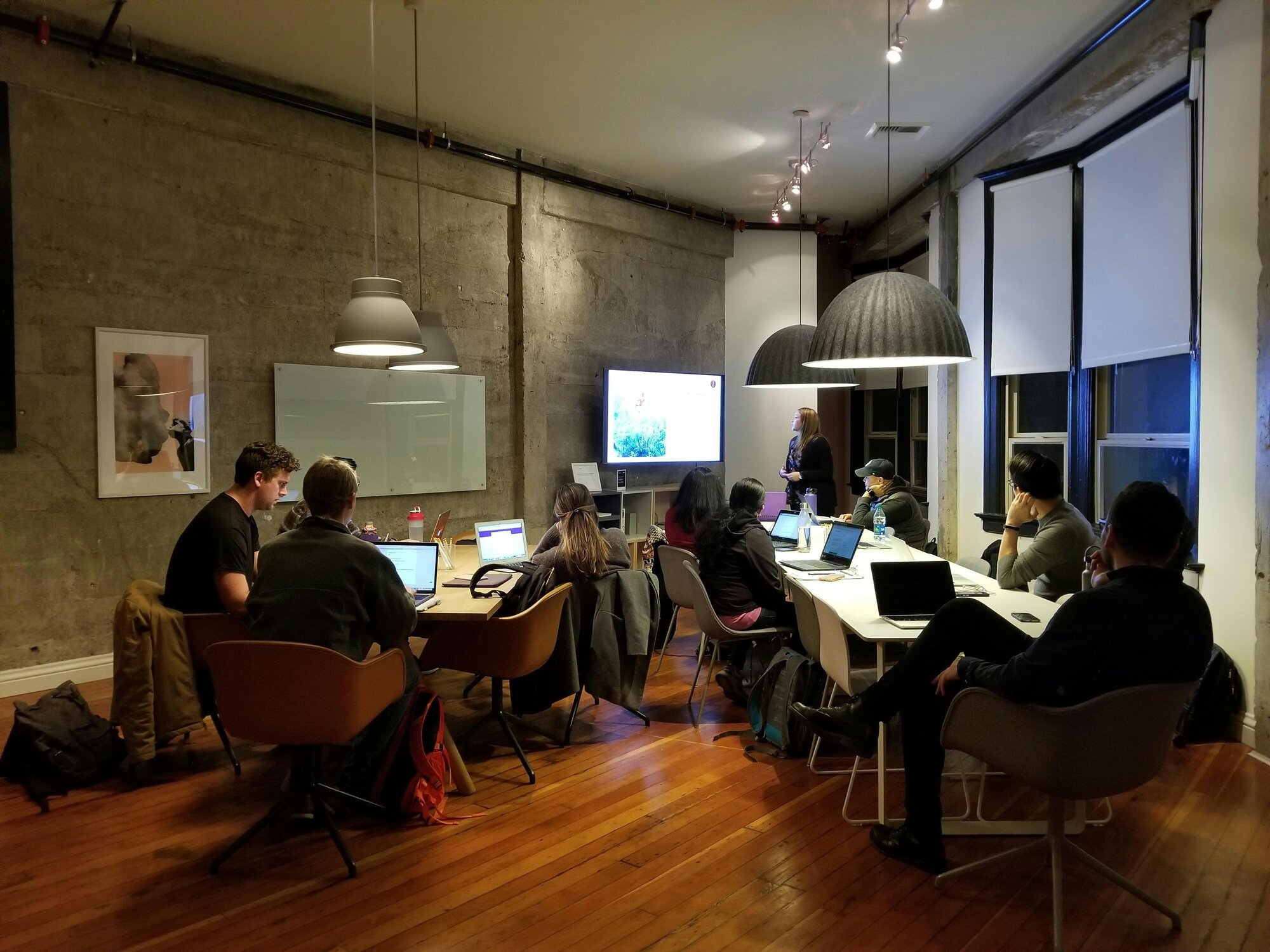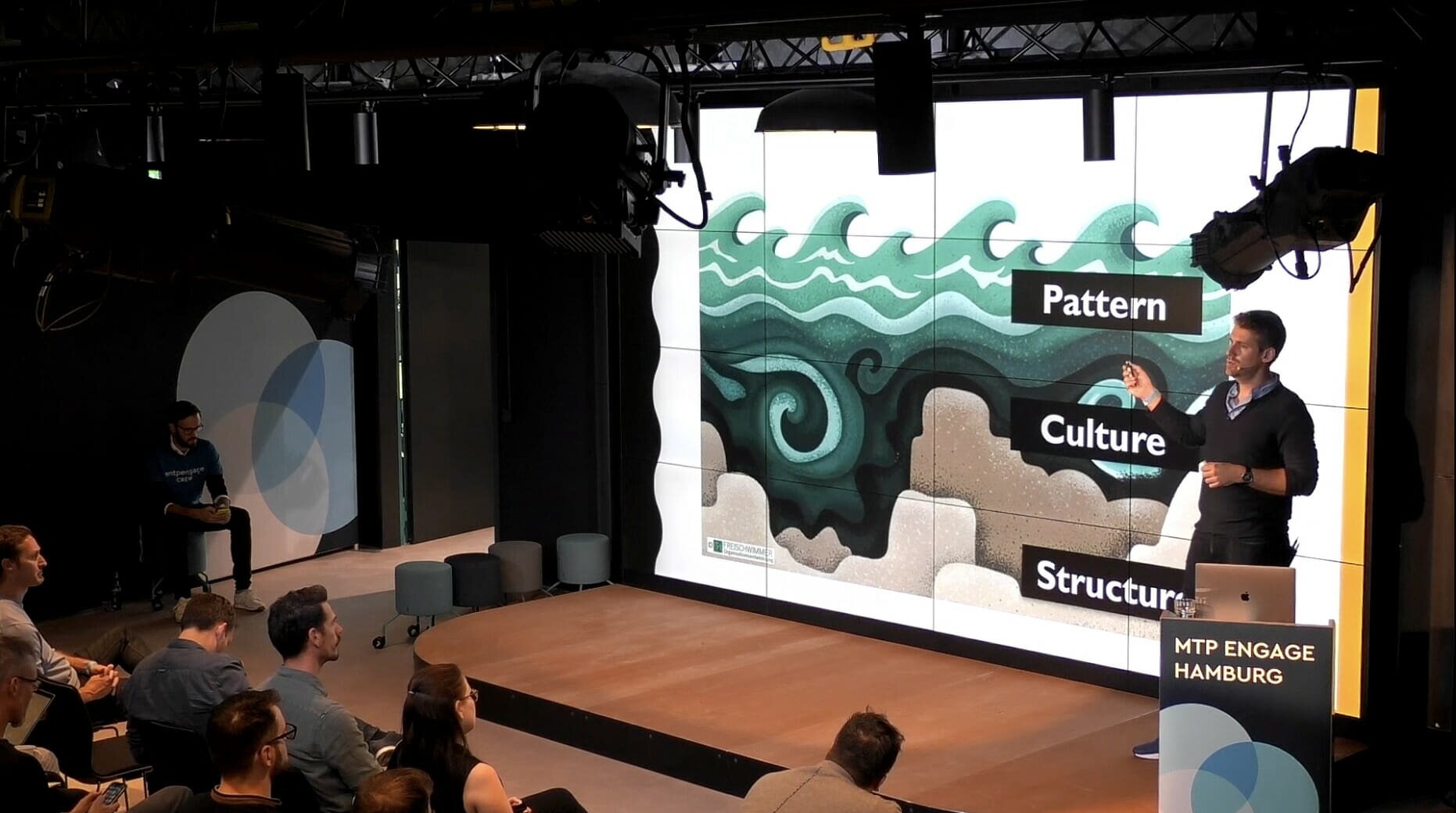In her keynote session at #mtpcon London 2022, Head of Behavioural Science at Fair HQ Bibi Groot shares some insights from behavioural science that help us build fair, innovative and empowered teams.
Watch this video or read on for key highlights from the talk.
Bibi starts by observing that economists and policymakers tend to think that we make rational decisions without emotion and that we weigh up the costs and benefits. But you only have to look around to see that this isn’t right. What people say is often quite different from what they do. We usually prefer a smaller present reward to a larger later reward – it’s what behavioural scientists call present bias and it explains irrational behaviour.
Behavioural science focuses on how and why people behave in the way that they do, and on helping us make better decisions.
The importance of diversity
Bibi then looks at how diversity in its many forms is key to creating conditions for creative problem-solving, and how we make decisions and make sense of the world. Building diverse and equitable teams is something we can all contribute to as product people, she says.
She runs through groupthink – imagining a typical team meeting and showing how it’s so easy not to consider other perspectives. Groupthink is worse when a team is homogeneous – it becomes an echo chamber.
Diverse teams by definition bring together different perspectives and ultimately lead to better, more nuanced ideas and more innovation. But diversity in a team must be managed well or it can lead to conflict, resistance and mistrust. People need an inclusive environment to thrive.
Removing bias
She then runs through the theory of System 1 and System 2 thinking and its role in different types of bias. System 1 thinking is quick and automatic, System 2 is slow and deliberate. Bibi focuses on unconscious bias and its role in diversity.
Bibi then shows that the work that most companies do to remove bias from decision-making doesn’t work.
It’s more powerful to focus on designing better systems so that bias doesn’t get the chance to hijack our decisions, she adds.
Evidence-based strategies that make a difference
How can we make our workplaces work for everyone?
Invite unique perspectives and celebrate them
We naturally listen to the powerful and senior voice in the room, and this can lead to groupthink. But we only solve big problems when people feel a sense of shared ownership and mission. To enable inclusive meetings Bibi suggests:
- get a different person from the team to lead your meeting each week
- Invite junior team members to speak before the senior team member
- Find different ways to ask questions
- Encourage people to post ideas and questions anonymously in the chat
- Share notes after a meeting and invite asynchronous comments so everyone has a chance to contribute
Build bridges across differences
Prejudice breaks down when we spend time with people from different backgrounds. It enables us to understand commonalities and breaks down barriers.
- Experiment with random coffees across levels and across teams
Recruit the best evidence
The cost of a bad hire can be as much as 50% of the first year’s salary. Think differently at interviews. Past work experience is also not a good indicator of future performance, it’s much better to prioritise a take-home task and follow up with a short chat about it. Blind yourself to the candidate’s name to remove any unconscious bias,
Be specific and focus on behaviours in feedback
About 95% use performance appraisals and they can be a strong barrier to equal opportunities. Majority groups are often judged on their potential, minority groups are judged on past performance.
- Make your feedback specific. Instead of “be more assertive next quarter” say “I notice you didn’t lead on product discovery, I think you’re ready to take on the challenge”.
- Use a framework to help guide your feedback, it reduces ambiguity.
Bibi finishes by asking us to think about what’s at stake: “We need everyone’s most innovative ideas to help us face today’s most pressing global challenges.”
There's more where that came from!
Explore more #mtpcon London 2022 content or use our Content A-Z to find even more product management insights.






